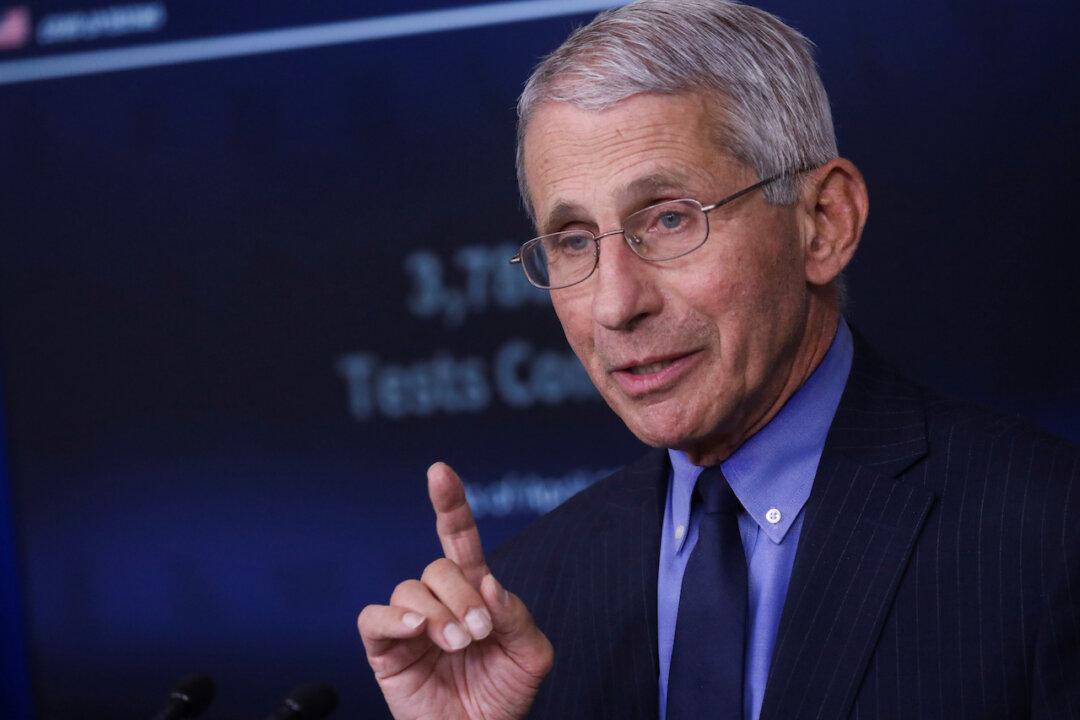Dr. Anthony Fauci, director of the National Institute of Allergy and Infectious Diseases, told CNN in an interview Sunday that the COVID-19 vaccine would not make a significant dent on mortality from the respiratory illness “for at least several weeks, if not longer.”
Fauci insisted, however, that the vaccine would eventually make an impact on the number of deaths attributed to the CCP (Chinese Communist Party) virus.





